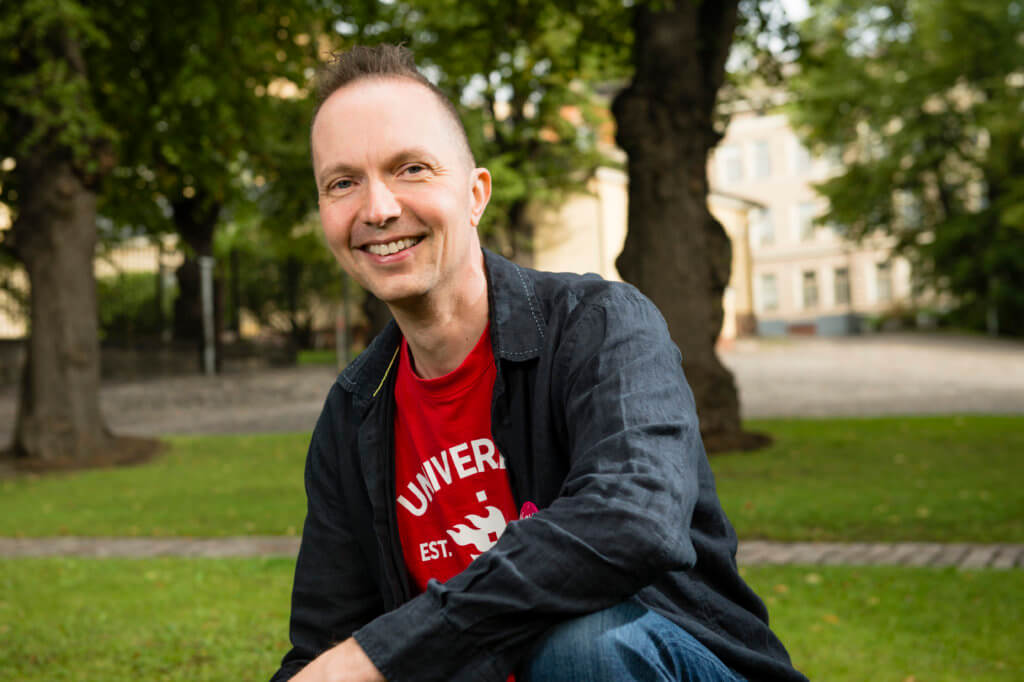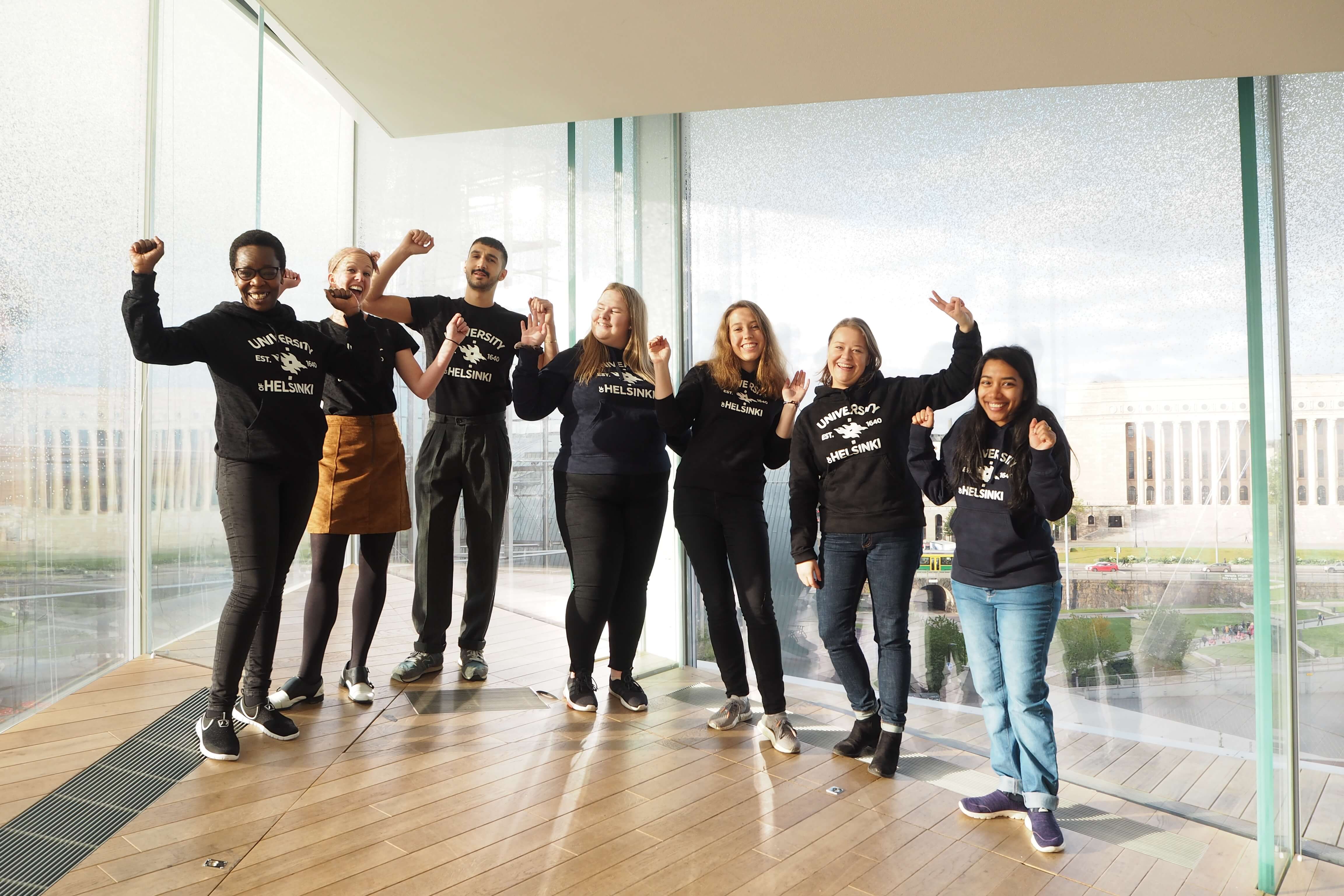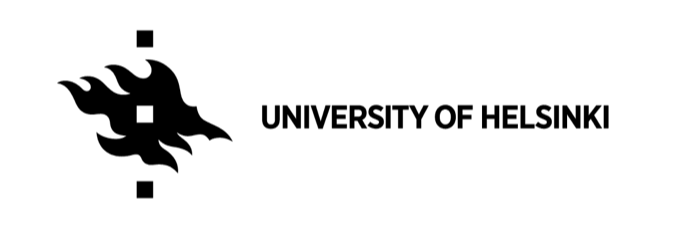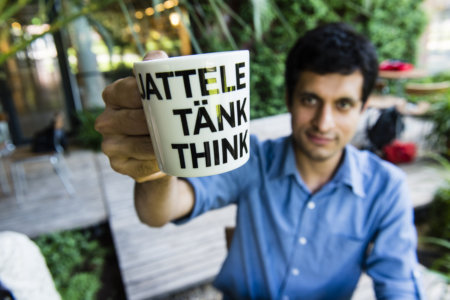The best master’s programmes stay abreast of current developments, are of high quality and are designed with employability in mind — a fact the University of Helsinki understands best. It may be Finland’s oldest academic institution, but it is also the country’s most progressive.
In our tech-driven era, digital skills have become a necessity in just about any sector and not just in tech companies. The University of Helsinki has made it its mission to ensure that its students graduate with future-focused skills –– specifically in data science and computer science.
While some universities offer extracurricular classes and comprehensive minors, the University of Helsinki has opted for a unique route –– one that truly exemplifies its commitment to producing versatile professionals.
For example –– economists that apply deep learning models to financial data; linguists capable of studying statistical properties of literary work; anthropologists who understand the issues associated with expanding datafication and digitalisation; as well as life scientists who understand the general principles of mathematical modelling or the probabilistic analysis of biological data.
Merging disciplines of this calibre is no easy feat, but the University of Helsinki does it with ease. They’ve delivered multidisciplinary, postgraduate degrees in computer science and data science for years.
The University of Helsinki offers a wide range of English-taught offerings, including the following:
Master’s Programme in Contemporary Societies
The Master’s Programme in Contemporary Societies (COS) was designed in response to the ever-changing nature of societies and their shared challenges of inequality, datafication and digitalisation. It develops professionals capable of analysing these dynamics through one of six study tracks: Global Development Studies, Social and Cultural Anthropology, Social and Public Policy, Social Psychology, Sociology or Social Data Science.
As one of five thematic pathways, students who choose COS will gain a deeper understanding of Data and Society. The programme also serves as a golden pathway into various courses in data science and statistics.
“It is important for students to leverage this knowledge if they wish to understand contemporary societies,” says programme director and senior lecturer Kimmo Vehkalahti. “In the process, they will learn the basics of collecting, using, analysing, visualising, understanding and communicating topics related to various types of data.”

Kimmo Vehkalahti
Master Programme in Informatics Life Sciences
The Master’s Programme in Life Science Informatics (LSI) was designed to bridge the gap between life science fields, such as biology and medicine, with quantitative data analysis fields like statistics, computer science and mathematics. That said, prospective students are expected to have a solid background in one of the latter topics.
The LSI offers four study tracks: Bioinformatics and Systems Medicine, Biomathematics, Biostatistics and Eco-evolutionary Informatics. Students will be able to explore each before deciding on a specialisation by their second semester. Regardless, every learner prepares for a career within one of the many scientific fields of sustainable and healthy human living, such as medicine and healthcare, ecology and environmental management, as well as genetics.

Jarno Vanhatalo
“These fields produce enormous amounts of data,” says associate professor of statistics, Jarno Vanhatalo. “We need modern methods from data science, mathematics and computing to analyse this data. Students of LSI acquire the necessary skills to use these methods. These skills provide them with a competitive advantage in modern job markets both in life science fields and in data science fields.”
Master’s Programme in Linguistic Diversity and Digital Humanities
If you’re passionate about language, speech and human cognition, the Master’s Programme in Linguistic Diversity and Digital Humanities (LingDig) could be ideal. Students will gain a comprehensive understanding of the nature and diversity of human language.
This highly technical course explores the theoretical and digital tools used to work with language and speech. The programme is truly interdisciplinary, combining five fields of study that interact on all levels: cognitive science, digital humanities, general linguistics, language technology and phonetics.

Mathias Creutz
The University of Helsinki’s linguistics research team heavily focuses on typology and identifying similarities and differences between languages and language families. The LinDig programme also teaches its learners to create artificial systems that resemble language, speech and human cognition.
“Because we are working with so much data, it is useful for everyone to have some knowledge about computation and data science methodology,” explains programme director Mathias Creutz. “If you’re a humanist, you need to know that this is part of it. Those interested in how the human mind works or how machines work –– you’ll be happy to know the LinDig programme has answers for both.”
The University also offers more traditional programmes in the field of data and computer science.
With the University of Helsinki’s Master’s Programme in Data Science, students are trained to work in data-intensive areas of industry and science with the skills and knowledge needed to construct complex data analysis problems.
Meanwhile, the Master’s Programme in Computer Science programme covers various areas of the field while teaching students to seek, assess, and analyse scientific information before applying methods of the field ethically and sustainably.
To find out more about the University of Helsinki, click here.
Follow the University of Helsinki on Facebook, Twitter, YouTube, Instagram and LinkedIn













